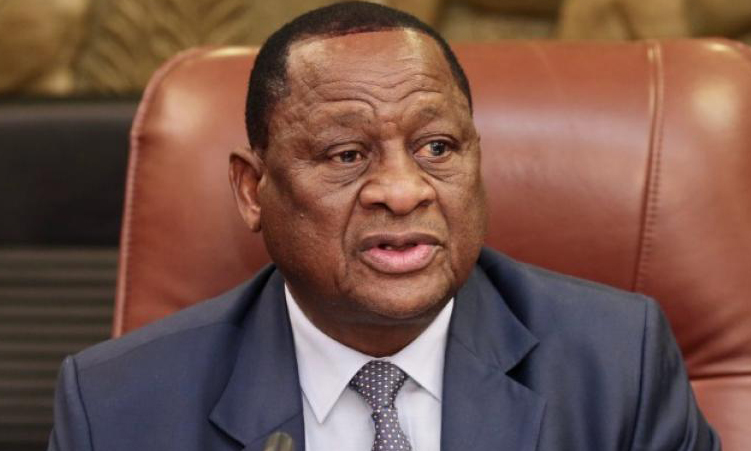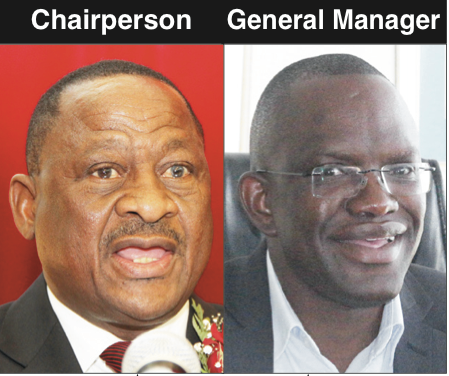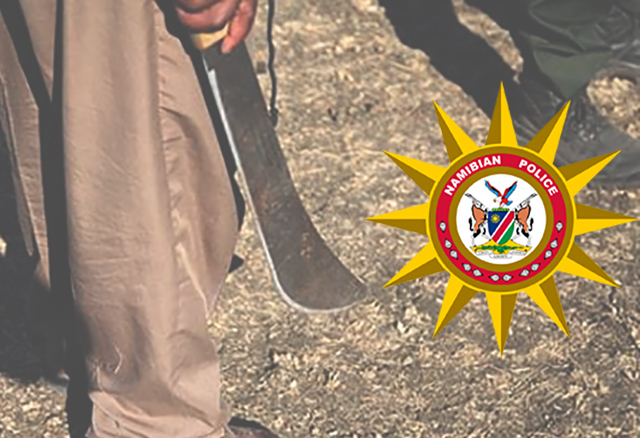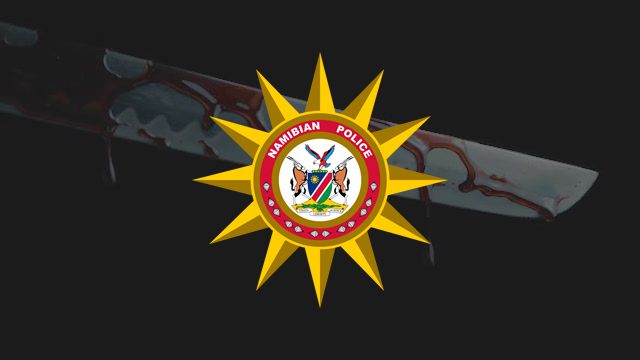A majority of Swapo-owned businesses are facing financial problems, prompting the holdings arm to complain to the party’s top hierarchy that subsidiaries were failing to repay inter-company loans that have mounted to about N$30 million. An investigation by The Namibian found that the party’s businesses are struggling despite having for years gotten preference for state contracts.
Several Swapo companies rely on government contracts to keep them in business, making the ruling party a player and referee across many facets of the country, especially the economy. And even though the business empire has grown since independence, few are thriving, with several companies constantly begging for financial bailouts.
The ruling party is active in a range of key sectors of the Namibian economy, including property, farming, media, fishing, transport, printing, security, healthcare and mining. Kalahari Holdings is Swapo’s main business and was formed in 1989. Kalahari Holdings fully owns six subsidiaries – Namib Contract Haulage (NCH), Namprint, Kudu Investment, Ndilimani Cultural Troupe, Kalasota Mining Enterprises and Klondike Investments, which is dormant.
Kalahari is in joint venture ownerships for MultiChoice Namibia, Namibia Protection Services, Radio Energy, Africa Online, Farm De Rust, Sun Karros, Nabimar and Namhealth.
Annual reports from 2007 and 2012 show that not all is well in the ruling party’s capitalist empire. “Time and again the holding company [Kalahari] is called upon to come to the financial rescue of its subsidiaries. Longterm loans have not been honoured,” an annual report of Kalahari Holdings said in 2007. Reports suggest the problem persists and is widespread.
The reports of Swapo businesses are wrapped in secrecy and thus rare to come by. They are tabled at party events randomly. The last known Kalahari Holdings annual report was tabled at the 2012 Swapo congress, while an “accountability report” was released at the company’s 25-year anniversary.
The 2012 report states that the ruling party’s businesses employ over 2 000 people and that the holding company spent about N$30 million trying to bail out 11 subsidiaries.
This year Kalahari Holdings has an asset base of N$250 million, the chairperson of Kalahari Holdings, Kalumbi Shangula, told The Namibian earlier this year. He said that amount does not include the assets of its subsidiaries.
The asset value is an increase from the N$50 million valuation made in 2007.
It is not clear what exactly contributed to the massive growth, but generally government contracts tend to go in favour of the ruling party’s businesses. Companies that the ruling party wholly own appear to be the ones mostly troubled, while partnership remains secretive.
TRANSPORT: Namib Contract Haulage (known as “yellow buses or Swapo buses”), a transport business, owed Kalahari N$15 million by 2007 and is understood not to have repaid anything up to now.
NCH owned 25 buses by 2007, but nine buses that were bought from China had broken down and remained parked Windhoek. It declared losses amounting to about N$2 million that year.
MEDIA: The party dabbles widely in the media industry. Swapo wholly owns Radio Energy 100, a popular urban radio station through 51% held by Kalahari and 49% by Zebra Holdings (also a Swapo business). The radio station was also in the red. It received a N$550 000 loan from Kalahari in 2007 and has not repaid it.
Energy’s station manager, Joseph Ailonga (Jossy Joss), declined to comment. Swapo also owns New Dawn Video Production, a perennially struggling multimedia firm which got a N$720 000 loan from Kalahari Holdings. That loan is also yet to be repaid.
Another loss-making entity is Namprint. The company has received numerous state tenders to print documents and stationery, with some of the most prominent being ballot papers for the 1999 and 2004 national elections. Kalahari Holdings chairperson Kalumbi Shangula said there are plans to revive the company after injecting N$30 million into its turnaround strategy. It bought printing machines a couple of years ago, which are still in boxes.
Swapo’s propaganda music group Ndilimani was started in 1980. Ndilimani received a N$170 000 loan from Kalahari in 2007. By 2012, Kalahari Holdings had spent N$5,2 million on salaries for the band’s members.
Interestingly, some members allegedly threatened to boycott performing at the biggest Swapo rally in Windhoek few days before last year’s elections, unhappy after discovering that musicians such as The Dogg and Gazza got as much as N$2,5 million each to produce an election album that has flopped after poor sales.

FISHING: The Swapo company partnered with Angolan fishing company Empresa de Pesca de Angola, forming a joint venture for a company known as Nabimar.
A report by Kalahari Holdings shows that Shangula signed the agreement between the two entities with politically connected Mário António de Sequeira eCarvalho of Angola’s GEFI SA and Demersal Fishing. According to the Angolan Press Agency, Carvalho is a member of the political bureau and secretary for information for Angola’s ruling party MPLA.
Kalahari Holdings is also in a joint venture with Sun Karros, the company that has a 50 to 99-year lease agreement with state-owned Namibia Wildlife Resorts to run Daan Viljoen Game Park, which is located 20km west of Windhoek.
Kalahari and another Swapo company called Zebra hold their stakes in Daan Viljoen via Oryx Investments. Oryx in turn is a 20% shareholder in San Karros Lifestyle Safaris, which obtained 60-year rights over the Daan Viljoen Game Park.
REAL ESTATE: Kudu Investment is Swapo’s property arm, which owns Pelican Square, a complex in Windhoek’s Hochland Park suburb. Kudu owed Kalahari N$4,3 million since 2007 but it is one of the best-performing companies.
The firm made a profit of N$1 million in 2012.
Annual reports also touted that the ruling party was planning to cash in on the housing prices boom in Windhoek by building flats in Hochland Park. Shangula insisted that the plan has not yet been executed.
Kudu Investment spent N$20 million on building the Promenaden Road development in Eros to benefit from the office rental boom. Kalahari has over the years also increased its interest in property deals such as apartments at in the Oshikoto region and by building property in regions such as Erongo, //Karas, Kunene, Oshana and in Khomas for projects worth N$63 million.
According to a Kalahari Holdings 1989 to 2014 “accountability report”, the party has acquired property countrywide worth N$10 million in the past decade.
Located in the Grootfontein area, Farm de Rust is Swapo’s agricultural and animal husbandry farm. Production has been on and off. The farm is said to be making progress but Kalahari’s 2012 report said “input costs continue to increase but our income decreased during the years under review”. The report said the farm owed Kalahari Holdings N$700 000. Farming income was around N$140 000, while the net loss was close to N$1 million.
Shangula admitted the farm suffers an operational loss and has been doing poorly recently, experiencing crop failure due to the drought.
“I should point out that the farm is using modern implements, has experienced workforce and backup support from professionals. But ultimately it is the rain that is the defining factor,” he added.
MINING: Kalahari Holdings is also into exploration deals through Hersota Mining Enterprise, a company operating in Zambia. The company has been bailed out by Kalahari with a N$2,4 million loan in 2007, but Shangula confirmed that it has now temporarily shut down.
Kalahari has a diamond licence but it is not operational, said Shangula, who added that the holding company does not have technical capability to exploit diamonds.
“Our intention is to enter into a strategic partnership with technical partners to exploit our natural resources for the benefit of our people in terms of employment creation,” he said. The government, run by Swapo, is responsible for awarding all sorts of mineral licences.

JOINT VENTURES
Through Kalahari, Swapo has a 51% stake in television provider MultiChoice Namibia (DSTV).
MultiChoice Africa owns the rest.
Their relation started in 1991 and it might explain why the company continues to dominate the satellite television market in Namibia.
Sources say Multichoice Namibia is Swapo’s cash cow and has given Kalahari dividends of over N$100 million in the past five years. MultiChoice Namibia has bluntly refused to comment on whether their dominance is protected by the ruling party nor how much they paid to Swapo in terms of benefits. Shangula denied allegations that Swapo protects MultiChoice Namibia, but the government is known to sign up for the subscription contracts of MultiChoice lavishly.
Swapo has a stake in Africa Online, established in 1999 as an internet service provider with Kalahari Holdings being a 25% shareholder. The remaining shares belong to Telkom SA.
Namibia Protection Services is a security services provider with state contracts to guard government offices.
Shangula said the company is one the best performing companies and that it has only received 13% of their tenders from the state, while the rest come from the private sector.
Documents from the National Tender Board show that the company received a tender to guard government ministries such as health and finance in Khomas region from 2013 to this year. During the same period, the Swapo security firm also got a contract to protect offices of the ministry of labour at Walvis Bay and Usakos.
Kalahari also owns 17% of NamHealth Holding, together with other ruling party affiliates.
Shangula described it as a static performer. NamHealth got a tender to administer the state-owned Public Service Employee Medical Aid Scheme (Psemas). It’s not clear how much that tender is now worth but it had a value of N$45 million in 2003. Psemas received N$1,3 billion from the national budget in the 2015/16 financial year, which is one of the single biggest recurring costs in government, with more than 300 000 beneficiaries.

NO PAY-BACK
Shangula declined to respond in detail about the movement of inter-party funds, but said loans by Kalahari Holdings to subsidiaries and related parties are “unsecured, interest-free and have no fixed term of repayment”. He compared the loans to a parent giving his or her child money.
“None of them paid back because we do not expect them to pay back the loans but we remind them sometimes about the loans, so that we can keep them on their toes,” he said.
With regards to the failing companies, Shangula said all the companies have directors with the responsibility to run them.
“As a holdings company, it is our responsibility to render the necessary support to the subsidiaries which may include human resource, technical or financial,” he said.
Shangula said Kalahari Hold Holdings provides more than 2 000 permanent jobs to Namibians and contributes to state coffers in the form of taxes.
According to a Kalahari Holdings 1989 to 2014 report, over the past years, the company has acquired plots in the two Kavango regions, Ohangwena and Oshikoto for N$1 million to build regional offices. Kalahari Holdings also splashed out N$42 million for the construction and renovation of eight regional offices and erecting of a fence at its party headquarters in Windhoek.
Since 2008, Kalahari Holdings has paid N$28 million to the ruling party coffers, while a mere N$557 000 was spent for the company’s social responsibility on schools. In contrast, Swapo has received close to N$100 million in state funding this year only.
*This story was produced by The Namibian’s investigative unit
Stay informed with The Namibian – your source for credible journalism. Get in-depth reporting and opinions for
only N$85 a month. Invest in journalism, invest in democracy –
Subscribe Now!








